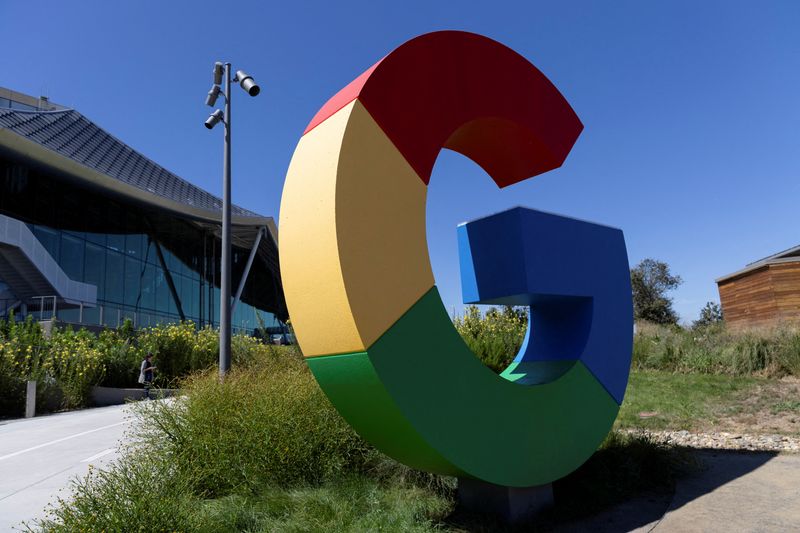By Zaheer Kachwala and Akash Sriram
(Reuters) -The U.S. Department of Justice’s proposed remedies to break up Google’s search dominance could weaken its main profit engine and stall its advances in artificial intelligence, even though a final outcome may be years away, analysts said.
The DOJ said on Tuesday it may ask a judge to force Google to divest parts of its business such as its Chrome browser and Android operating system, that the Alphabet-owned company used to maintain an illegal monopoly in online search.
It is only one of the many potential fixes prosecutors are considering.
Barring Google from collecting sensitive user data, requiring it to make search results and indexes available to rivals, letting websites opt out of their content being used to train AI products and making Google report to a “court-appointed technical committee” are also on the table.
Alphabet (NASDAQ:GOOGL) investors, who have seen several antitrust actions this year including a ruling on Monday ordering Google to open up its app store, sent shares 1.5% lower to $161.86 at Wednesday’s close, after the DOJ news.
The remedies strike at the heart of the internet empire that has made Google synonymous with search and can reduce its revenue while giving its rivals more room to grow.
“The DOJ has reverse engineered Google’s formula for success and is intent in dismantling it,” said Gil Luria, managing director and senior software analyst at D.A. Davidson.
“The proposed privacy and data accumulation remedies would give Google the choice to either share all the data it collects or stop gathering the data in the first place. As it will likely choose the former, that could strengthen its competitors and possibly create new competition,” Luria said.
Analysts warned that the AI-related remedies could disrupt Google’s business when it is already under pressure from startups such as ChatGPT maker OpenAI and AI-powered search engine operator Perplexity.
Google’s U.S. search ad market share is forecast to fall below 50% for the first time in more than a decade by 2025, according to research firm eMarketer.
“The last thing Google needs right now in the broader AI battle is having to fight with one hand tied behind their backs by regulators,” said Bernstein analyst Mark Shmulik.
Other companies likely to benefit from the remedies include search players such as DuckDuckGo and Microsoft (NASDAQ:MSFT) Bing, as well as AI rivals such as Meta Platforms (NASDAQ:META) and Amazon (NASDAQ:AMZN).
“The framework understands that no single remedy can undo Google’s illegal monopoly, it will require a range of behavioral and structural remedies to free the market,” said Kamyl Bazbaz, senior vice president of public affairs at DuckDuckGo.
‘REMEDY SPAGHETTI’
But some industry watchers and analysts said it was far from certain if the remedies, the biggest antitrust effort by the U.S. since a case against Microsoft in 1999, would go through.
“The DOJ is throwing remedy spaghetti at the wall,” said Adam Kovacevich, CEO and founder of Chamber of Progress, a trade group that represents tech companies.
“It might score some headlines, but it’s a legal non-starter. The DOJ is throwing out remedies that go far beyond the judge’s ruling, and history tells us that broad remedies won’t survive the appeals process,” Kovacevich said.

However, Russ Mould, investment director at AJ Bell, said this risk has been known for a long time.
“Investors don’t appear to believe a forced break-up will happen,” he said.











